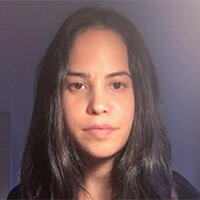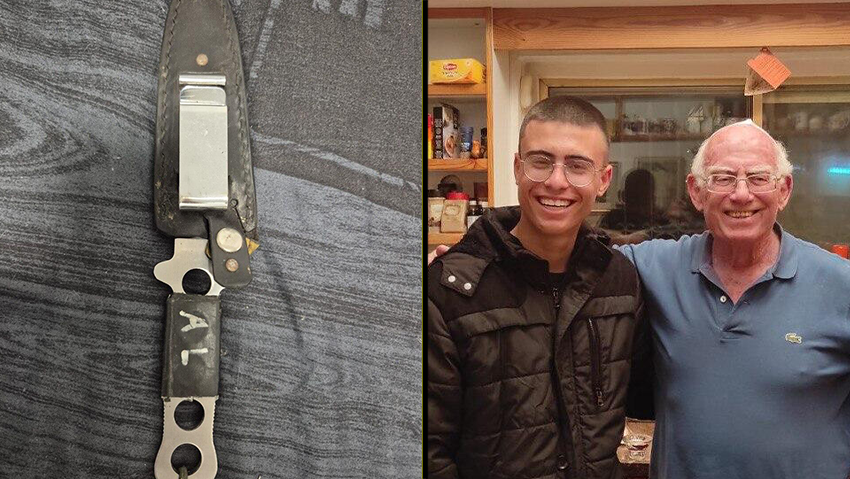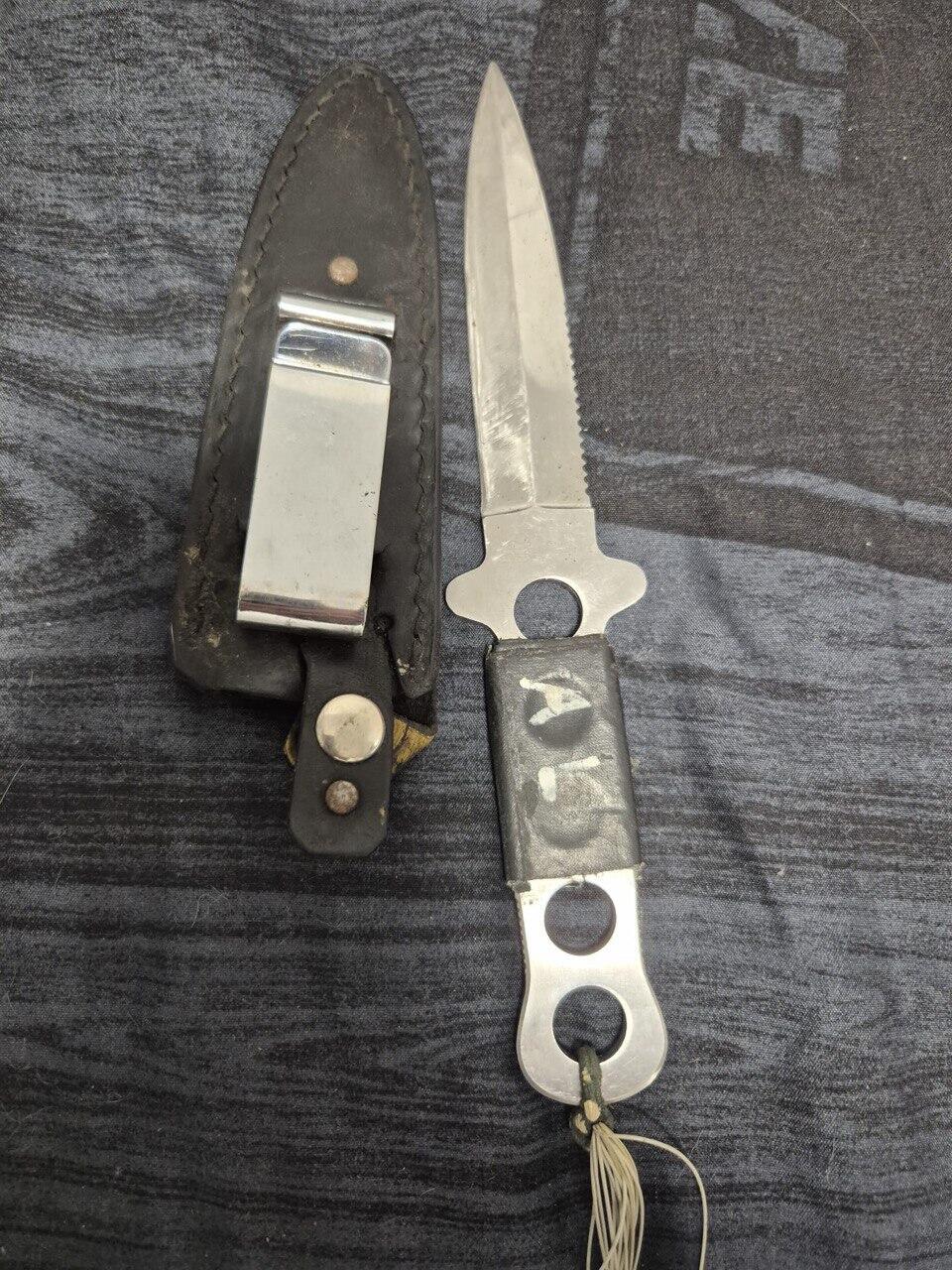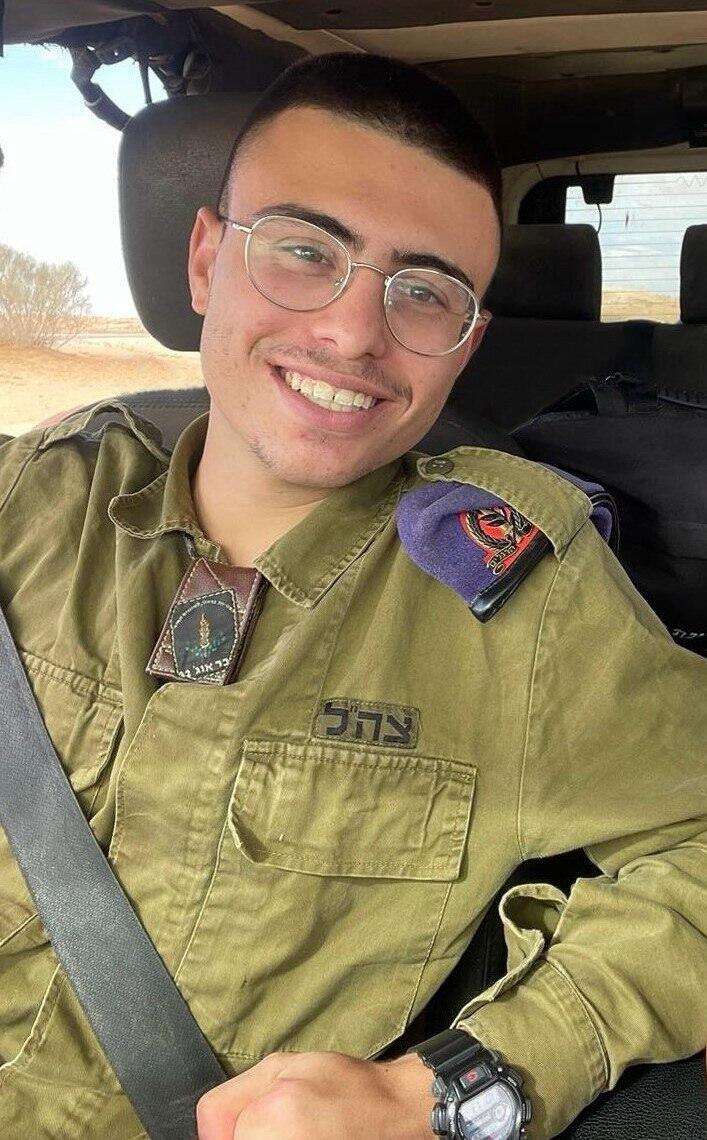Just before heading into combat in Gaza, the late Staff Sergeant Adi Leon, a soldier in the Givati Brigade's Tzabar Battalion, made an unusual request to his parents: a commando knife.
His parents, on their way to meet him in his late grandfather's jeep—a Holocaust survivor who had passed away a year earlier—searched the vehicle and found an old knife in one of its compartments, ready for use. Adi attached the knife to his vest before entering the battle, one from which he would not return. He fell during the early days of the ground operation in Gaza along with 10 of his comrades when an anti-tank missile struck their Namer armed personnel carrier.
The knife survived the deadly strike and was returned to the family as a harrowing keepsake, connecting the legacy of a grandfather who survived the Holocaust with a grandson who fell defending the State of Israel. Between grief and hope, Adi’s Lights was born—a special educational kit that carries on Adi’s values and the path for which he gave his life.
"Read after my death": Adi’s notebook becomes a living memory
"Adi was a soldier in the Tzabar Battalion of the Givati Brigade. He enlisted in August 2021," his mother, Nurit Leon, told Ynet. "He spent most of his service in the brigade and the battalion and was just about to complete his service. On October 7, he and his unit were called into action during their leave. They traveled north to the Golan Heights to equip themselves, and that Saturday, they entered Kfar Aza. There were many terrorists there. They rescued residents and witnessed the horrors. On Monday, when he left Kfar Aza, he called us, sounding shaken. He didn’t know what we already knew and wanted to protect us. The fighting was intense, and he said, ‘I’ve seen things no human being in the world should have to see.’ We understood they had gone through a truly harrowing experience, but we couldn’t comprehend the full scale of the atrocities.
"At that point, they moved to staging grounds. Between Monday, when they left Kfar Aza, and the start of the ground operation, they underwent training. Two days later, on Wednesday night, he called us around 11 p.m. We innocently asked if we could come visit him. He said, 'I don’t know what’s happening with me.' He wasn’t allowed to say where he was but gave us a hint. Once I realized where he was, I told my husband, Amir, 'I’m going.' He said, 'You’re crazy,' and I replied, 'Be careful. You might regret this for the rest of your life.' I don’t know why I said that. I called a friend from our community who owned a long weapon and asked if he could come south with us, and he agreed. In the middle of the night, we packed our things and decided to drive to Adi in my father’s jeep, which we inherited a few months earlier after he passed away."
Nurit explained, "My father was a Holocaust survivor. He was born in 1940 and was one of the Belgian children hidden by the Belgian underground. His parents gave him to a neighbor posing as his grandmother, and after a few months, he was handed over to the underground because it became too dangerous. After the war, he was reunited with his mother, who survived Auschwitz, while his father was murdered. They immigrated to Israel, and my mother met a young widower named Yaakov in Tel Aviv—they married. My father, Dr. Shaul Perelberg, later became a prominent urologist and one of the founders of the medical corps in Tzrifin. He always said, ‘Remember what happened when we didn’t have an army.’ He didn’t speak about his experiences until he was 76, when he attended a conference of the Belgian underground and realized there were others like him in Israel. Only then did he start sharing his story."
She added, "He passed away at the age of 82, just 10 days after being diagnosed with cancer. He and Adi had a special bond. When Adi heard he was in the hospital, he left the army to visit him in uniform. My mother said my father came alive when he saw Adi in uniform—it was the last time they saw each other."
Nurit and her husband drove to visit Adi just before he entered combat in Gaza, in her late father’s jeep. "We took the jeep because we were worried about potential terrorists on the roads. A few minutes before we left, I asked Adi if he needed anything. He said, 'Bring me a knife.' I asked, 'What kind of knife?' He replied, 'A kitchen knife, a commando knife.' I told him, 'We don’t have things like that at home.' He didn’t ask for food or anything else. He understood he needed a backup plan if his weapon failed or if he had to face terrorists up close.
"Twenty minutes before meeting him, I told my husband, 'My father always kept his car well-stocked, like many Holocaust survivors. Let’s check.' We searched the compartments and, in one of them, we found a fully equipped commando knife. We looked at each other in shock. I said, 'We’re being guided from above and below.' We met Adi in the middle of the night, and he immediately attached the knife to his vest. We told him, 'You and your friends are making Israeli history.'"
On October 27, Adi entered Gaza with the Namer APC and was killed when an anti-tank missile struck the vehicle. "They were the first APCs to enter Gaza. Adi was paired with the late Pedia Mark. Four days into the fighting, the missile penetrated the APC. Of the 12 soldiers inside, 11 were killed, including Adi," Nurit said.
The commando knife survived the explosion and was returned to the family. "It came back in the blue boxes. The knife survived the blast and still had residue from the missile on it. Adi had engraved his initials on the knife. He carried it over his heart, on the left side of his vest."
Get the Ynetnews app on your smartphone: Google Play: https://bit.ly/4eJ37pE | Apple App Store: https://bit.ly/3ZL7iNv
During the shiva, two soldiers who served with Adi contacted Nurit and brought her something: "Two friends came and gave us Adi’s notebook. In it, he left farewell letters to us, his parents, his sisters, his extended family, his friends, and the state. The notebook was titled, ‘Read After My Death.’ The last page was addressed to the country. He wrote, ‘I’m going into this war knowing I may not return, but I wholeheartedly believe in what I’m doing. We have no other land, and now it’s my turn to protect it and avenge the innocent—babies, elders, women—who were helpless against Hamas. This is the education my parents gave me, and this is what I believe in. I hope you remember me.’"
The letter, along with others, is published in the book If You Are Reading These Words. Nurit said, "Adi made a spelling error, perhaps intentionally, repeating ‘helpless’ to reflect the unanswered cries of October 7. He humbly asked to be remembered, which is why we created an educational kit inspired by his letter called ‘Adi’s Lights,’ now translated into five languages."
First published: 19:06, 04.24.25





